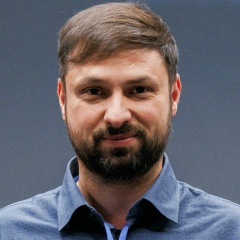Парадокс покоя
В терапии острых состояний, например, при работе с желанием совершить самоубийство, человеку обычно задают вопрос: ну, ок, допустим, все уже произошло, ты ушел отсюда и что там? Дело в том, что даже убегая от каких-то предельно неприятных переживаний в желание исчезнуть, мы все равно стремимся к каким-то другим переживаниям, даже если этого не осознаем и даже если не верим в жизнь после смерти. Хотеть абсолютного небытия человек не может просто потому, что в опыте психики нет и не может быть такого переживания. И если дать человеку подумать и немного пофантазировать, заглянуть туда - за завесу - чаще всего желаемым состоянием избавления окажется полный покой. Как правило, к нему будет добавлено нечто вроде "я там никому ничего не должен" "от меня никто ничего не хочет" и так далее. Но само ощущение будет именно полным абсолютным покоем.
И вот здесь некоторые специалисты совершают одну, на мой взгляд, серьезную ошибку. Состояние покоя, по их мнению, не является тем, к чему якобы должна стремиться человеческая психика, и такую покоецентричную мотивацию они предлагают искусственно раскачать: "и когда ты там абсолютно спокоен, то хочется, чтобы что?" - задают они вопрос человеку, стремясь зацепить его за ну хоть какое-нибудь желание, предполагающее дальнейшее движение здесь - в этой жизни, и дающее шансы выйти на целеполагание в сторону, например, счастья или любви. А ему ничего не хочется, кроме именно этого самого покоя, отпускающего все напряжения в его системе координат.
Система координат в таких случаях похожа на запутанную рыболовную сеть, которая мчится вслед за моторной лодкой, но ничего не может поймать, потому что везде в ней какие-то натяжения и узлы. И, конечно, стоит ее распутать, чтобы выстроить новую мотивацию, способную приносить энергию. Но для начала надо остановить лодку.
И желание уйти - это и есть стремление найти состояние покоя, чтобы распутать сеть. Хотя сам человек глубины и мудрости своей мотивации в такие моменты естественно не осознает и ни о каком распутывании сетей, с целью затем применить их заново и по назначению, сил мечтать не имеет.
Что же это означает?
Это, конечно же, не означает, что человеку надо дать возможность благополучно застрелиться, дабы он мог наконец вселенский покой всей душой ощутить. Нет.
Но и выдергивать его в "напиши список 100 маленьких и больших радостей" тоже бессмысленно. Ему нечем радоваться. Энергии нет и ловить ее пока нечем.
А вот найти тот самый покой, позволяющий запутанному распутаться, но по эту сторону реальности, не уходя, очень даже возможно.
И об одном из самых, по моим ощущениям, легких способов, пишет Кинслоу в новой книге "Парадокс покоя".
Еще не дочитала последних глав, но уже однозначно ок.
Без его предыдущих книг может быть сложновато.
Но все равно, всячески рекомендую.
ps Постараюсь через некоторое время пересказать здесь метод. Хотя, скорее всего, скоро он появится в сети, как и все предыдущие.
В терапии острых состояний, например, при работе с желанием совершить самоубийство, человеку обычно задают вопрос: ну, ок, допустим, все уже произошло, ты ушел отсюда и что там? Дело в том, что даже убегая от каких-то предельно неприятных переживаний в желание исчезнуть, мы все равно стремимся к каким-то другим переживаниям, даже если этого не осознаем и даже если не верим в жизнь после смерти. Хотеть абсолютного небытия человек не может просто потому, что в опыте психики нет и не может быть такого переживания. И если дать человеку подумать и немного пофантазировать, заглянуть туда - за завесу - чаще всего желаемым состоянием избавления окажется полный покой. Как правило, к нему будет добавлено нечто вроде "я там никому ничего не должен" "от меня никто ничего не хочет" и так далее. Но само ощущение будет именно полным абсолютным покоем.
И вот здесь некоторые специалисты совершают одну, на мой взгляд, серьезную ошибку. Состояние покоя, по их мнению, не является тем, к чему якобы должна стремиться человеческая психика, и такую покоецентричную мотивацию они предлагают искусственно раскачать: "и когда ты там абсолютно спокоен, то хочется, чтобы что?" - задают они вопрос человеку, стремясь зацепить его за ну хоть какое-нибудь желание, предполагающее дальнейшее движение здесь - в этой жизни, и дающее шансы выйти на целеполагание в сторону, например, счастья или любви. А ему ничего не хочется, кроме именно этого самого покоя, отпускающего все напряжения в его системе координат.
Система координат в таких случаях похожа на запутанную рыболовную сеть, которая мчится вслед за моторной лодкой, но ничего не может поймать, потому что везде в ней какие-то натяжения и узлы. И, конечно, стоит ее распутать, чтобы выстроить новую мотивацию, способную приносить энергию. Но для начала надо остановить лодку.
И желание уйти - это и есть стремление найти состояние покоя, чтобы распутать сеть. Хотя сам человек глубины и мудрости своей мотивации в такие моменты естественно не осознает и ни о каком распутывании сетей, с целью затем применить их заново и по назначению, сил мечтать не имеет.
Что же это означает?
Это, конечно же, не означает, что человеку надо дать возможность благополучно застрелиться, дабы он мог наконец вселенский покой всей душой ощутить. Нет.
Но и выдергивать его в "напиши список 100 маленьких и больших радостей" тоже бессмысленно. Ему нечем радоваться. Энергии нет и ловить ее пока нечем.
А вот найти тот самый покой, позволяющий запутанному распутаться, но по эту сторону реальности, не уходя, очень даже возможно.
И об одном из самых, по моим ощущениям, легких способов, пишет Кинслоу в новой книге "Парадокс покоя".
Еще не дочитала последних глав, но уже однозначно ок.
Без его предыдущих книг может быть сложновато.
Но все равно, всячески рекомендую.
ps Постараюсь через некоторое время пересказать здесь метод. Хотя, скорее всего, скоро он появится в сети, как и все предыдущие.
Paradox of peace
In the treatment of acute conditions, for example, when working with the desire to commit suicide, a person is usually asked the question: well, ok, let's say everything has already happened, you left here and what is there? The fact is that even running away from some extremely unpleasant experiences in the desire to disappear, we still strive for some other experiences, even if we do not realize it and even if we do not believe in life after death. A person cannot want absolute nonexistence simply because in the experience of the psyche there is not and cannot be such an experience. And if you give a person thought and a little imagination, look there - behind the veil - most often the desired state of deliverance will be complete peace. As a rule, something like “I don’t owe anything to anyone” “nobody wants anything from me” will be added to it and so on. But the sensation itself will be exactly complete absolute peace.
And here, some experts make one, in my opinion, a serious mistake. The state of rest, in their opinion, is not what the human psyche supposedly should strive for, and they offer such a pocentric motivation to artificially swing: "and when you are absolutely calm there, you want something?" - they ask the person a question, trying to hook him for well, at least some desire, suggesting further movement here - in this life, and giving chances to go towards goal-setting in the direction of, for example, happiness or love. And he does not want anything, except for this very rest, which releases all the stresses in his coordinate system.
The coordinate system in such cases is similar to an intricate fishing net that rushes after a motor boat, but cannot catch anything, because everywhere there are some tensions and nodes. And, of course, it is worth untangling it in order to build a new motivation that can bring energy. But first you need to stop the boat.
And the desire to leave - this is the desire to find a state of rest in order to unravel the network. Although the man himself does not naturally realize the depth and wisdom of his motivation at such moments, and doesn’t have the strength to dream about unraveling the networks, then with the aim of applying them anew and as intended.
What does this mean?
This, of course, does not mean that a person needs to be given the opportunity to shoot himself safely, so that he can finally feel universal peace with his whole soul. No.
But pulling it out in “write a list of 100 small and big joys” is also meaningless. He has nothing to rejoice at. There is no energy and there is nothing to catch it yet.
But to find the very peace that allows the tangled to unravel, but on this side of reality, without leaving, it is very possible.
And about one of the most, in my senses, easy ways, Kinslow writes in the new book, The Paradox of Peace.
I have not finished reading the last chapters, but already definitely approx.
Without his previous books, it can be tricky.
But anyway, I highly recommend it.
ps I’ll try to retell the method here after a while. Although, most likely, it will soon appear on the network, like all the previous ones.
In the treatment of acute conditions, for example, when working with the desire to commit suicide, a person is usually asked the question: well, ok, let's say everything has already happened, you left here and what is there? The fact is that even running away from some extremely unpleasant experiences in the desire to disappear, we still strive for some other experiences, even if we do not realize it and even if we do not believe in life after death. A person cannot want absolute nonexistence simply because in the experience of the psyche there is not and cannot be such an experience. And if you give a person thought and a little imagination, look there - behind the veil - most often the desired state of deliverance will be complete peace. As a rule, something like “I don’t owe anything to anyone” “nobody wants anything from me” will be added to it and so on. But the sensation itself will be exactly complete absolute peace.
And here, some experts make one, in my opinion, a serious mistake. The state of rest, in their opinion, is not what the human psyche supposedly should strive for, and they offer such a pocentric motivation to artificially swing: "and when you are absolutely calm there, you want something?" - they ask the person a question, trying to hook him for well, at least some desire, suggesting further movement here - in this life, and giving chances to go towards goal-setting in the direction of, for example, happiness or love. And he does not want anything, except for this very rest, which releases all the stresses in his coordinate system.
The coordinate system in such cases is similar to an intricate fishing net that rushes after a motor boat, but cannot catch anything, because everywhere there are some tensions and nodes. And, of course, it is worth untangling it in order to build a new motivation that can bring energy. But first you need to stop the boat.
And the desire to leave - this is the desire to find a state of rest in order to unravel the network. Although the man himself does not naturally realize the depth and wisdom of his motivation at such moments, and doesn’t have the strength to dream about unraveling the networks, then with the aim of applying them anew and as intended.
What does this mean?
This, of course, does not mean that a person needs to be given the opportunity to shoot himself safely, so that he can finally feel universal peace with his whole soul. No.
But pulling it out in “write a list of 100 small and big joys” is also meaningless. He has nothing to rejoice at. There is no energy and there is nothing to catch it yet.
But to find the very peace that allows the tangled to unravel, but on this side of reality, without leaving, it is very possible.
And about one of the most, in my senses, easy ways, Kinslow writes in the new book, The Paradox of Peace.
I have not finished reading the last chapters, but already definitely approx.
Without his previous books, it can be tricky.
But anyway, I highly recommend it.
ps I’ll try to retell the method here after a while. Although, most likely, it will soon appear on the network, like all the previous ones.

У записи 8 лайков,
3 репостов.
3 репостов.
Эту запись оставил(а) на своей стене София Завьялова























![Стас Однолетков -=[strast]=- Стас Однолетков -=[strast]=-](https://sun9-50.vkuserphoto.ru/s/v1/ig2/BQKIUfD3kthNCNNY9BS69xiPt_GjwVRhAU8D64L6gfeFjcmrTqYrLAC9NKgCppVxwhm79Mi5RypIHhjSHOhQK2uy.jpg?quality=95&crop=347,544,400,400&as=32x32,48x48,72x72,108x108,160x160,240x240,360x360&ava=1&cs=200x200)




